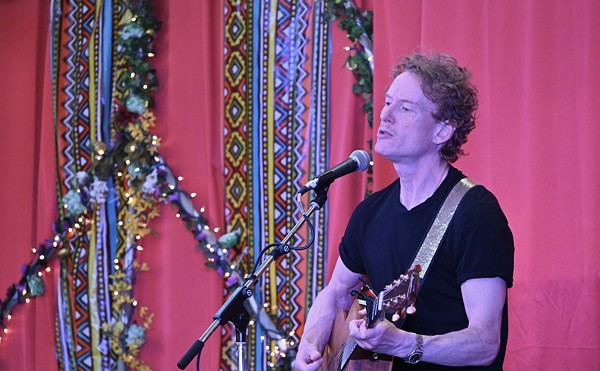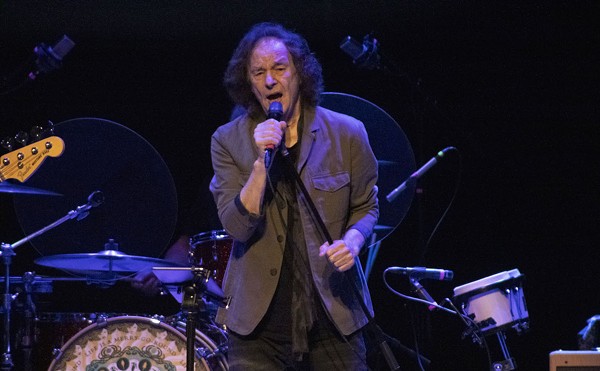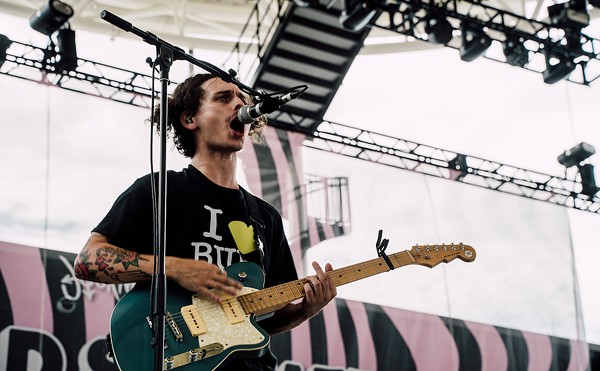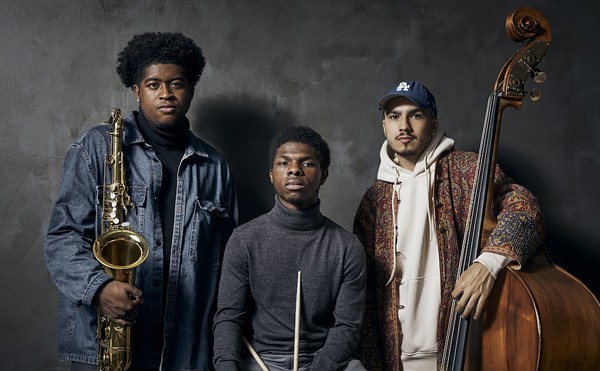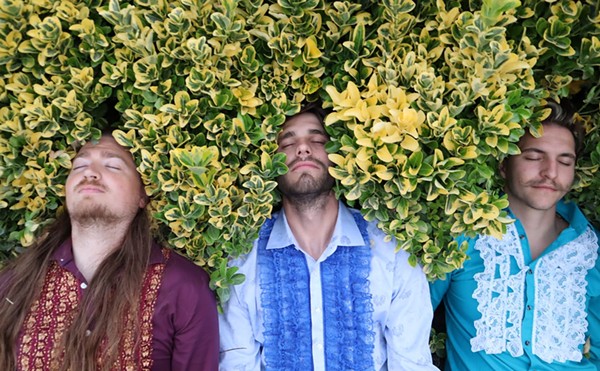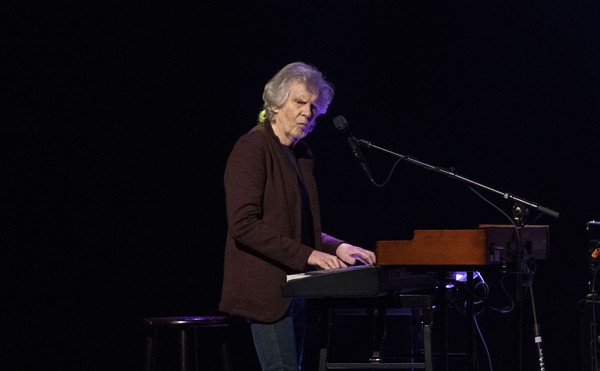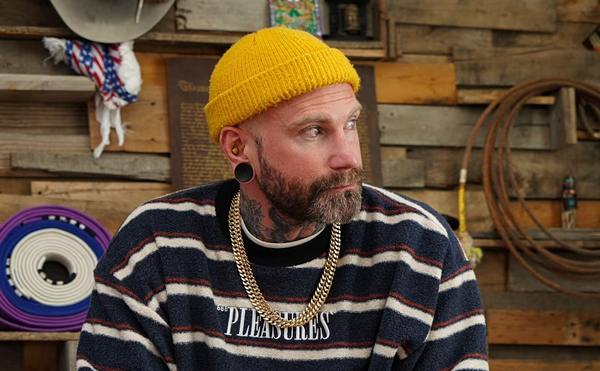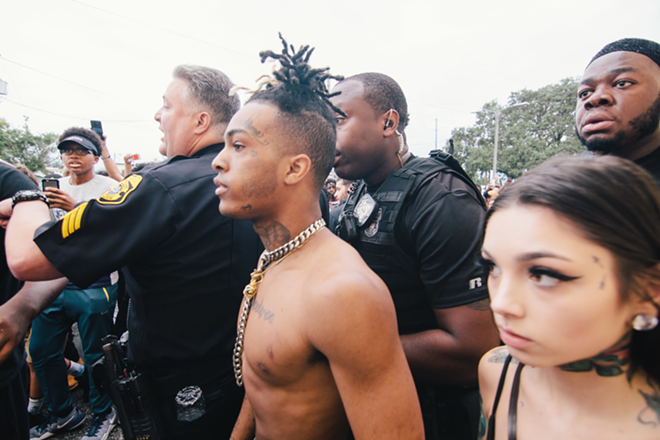
Newsflash: Everything is polarizing in the internet age.
In a world where the uproar over Obama’s tan suit was massive, yet still mere prelude to the perceived outrages of our current divided days, the furiously fast fingers flitting away at Facebook were bound to ignite furor over the June 18 shooting of South Florida rapper Jahseh Dwayne Onfroy. Better known as XXXTentacion, Onfroy — who was just 20 years old when he was shot near a motorcycle dealership in Deerfield Beach, Florida — emerged as a divisive figure, and was easily one of the most popular new rappers of the streaming era. A CL story about his canceled surprise show at Ybor City’s Orpheum was the music section’s second most popular post of 2017. Old farts everywhere wondered who the fuck this kid with a tree tattooed on his face was and why anyone cared.
In the moments after XXXTentacion was pronounced dead, who he was and the reasons he was both loathed and admired became undoubtedly clear to anyone within eye or earshot of a screen or newsfeed. In his songs — which set streaming records in both life and death — XXXTentacion put every bit of himself on the tape. Consider “Jocelyn Flores,” a 2017 track where he addressed the suicide of a fan.
“Picture this, in bed, get a phone call/girl that you fucked with killed herself/that was this summer and nobody helped,” is how one lyric goes before XXX dips into his own personal struggle with mental illness. It marked the most clear-cut example of a traditionally machismo genre starting to embrace its vulnerable side. “I’m in pain, wanna put 10 shots in my brain/I’ve been trippin’ ‘bout some things, can’t change/suicidal, same time I’m tame.”
Another 2017 song, “YuNg BrAtZ," gets its bite from the cringeworthy first verse: “Try me, might fight/fist fuck, on sight/wrist heavy, fat dyke/pop Molly, Mike Ike/I got glacial white ice/And my bitch rack nice/and I do fight dykes/ride my dick like a bike.”
His music gave insight into the violence that both informed XXXTentacion’s rise to fame and marred his time in the limelight. XXXTentacion was a product of abuse and neglect, and he sadly mimicked that behavior, acting out the violent, misogynistic and occasionally homophobic themes in many of his songs. XXXTentacion was locked up in early 2017 on charges that eventually grew to include a horrific aggravated battery of his then-pregnant former girlfriend, a domestic battery by strangulation, false imprisonment and witness tampering. He once stomped a gay juvenile hall cellmate to near-death in a homophobic attack. Fans argue that at the time of his death, XXXTentacion had turned a corner and even donated money to support embattled communities like the kids at Marjory Stoneman Douglas High School, which is just four miles away from XXXTentacion’s Parkland home. Still, his most vitriolic critics proffered that his death was a good thing, and that karma came to pay XXXTentacion a visit.
SERIOUSLY, STOP THE HITS
A brief history of Chris Brown's violence
As Chris Brown (an alleged abuser who purportedly left his then-girlfriend Rihanna’s face covered in bruises after a pre-Grammy award altercation in 2009) gets set to play Tampa’s nearly 20,000-seat MidFlorida Credit Union Amphitheatre on July 6, the idea of violent pop-cultural figures who are praised for their artistic achievements is impossible to ignore.
It happened with David Bowie, a one-time cokehead who had been accused of having sex with 13-year-old groupies and being obsessed with Hitler. Elvis’s affinity for his young female fans has been famously documented. John Lennon — who overused drugs, physically abused his first wife Cynthia and mentally abused his oldest son Julian — routinely gets a pass, and so do Marvin Gaye, Ike Turner, James Brown and even Frank Sinatra, who all abused or threatened the women in their lives.
Psychologists have plenty of hypotheses about why we choose to forgive, and an equally stocked cabinet of reasons why we tend to overlook, the crimes of those we admire. Our president is a pussy-grabber, after all.
Dr. Jonathan C. Mitchell, a licensed psychologist who is the coordinator of the Health Psychology Postdoctoal Fellowship at University of South Florida's counseling center offered these thoughts when CL reached out for some insight.
While there isn’t a single explanation, I think there several ideas that are helpful in trying to understand why we might overlook the more unsavory aspects of celebrities, and musicians in particular. On a broad level, we may adopt a positive view of famous individuals because it more closely conforms to mental representation we tend to have for people with power or status – that they are set apart from us by virtue of their talent, looks, or influence. These kinds of implicit biases can be directed at any number of targets. They can even be adaptive in some situations because they help save time as our brains process information. They also get in our way frequently. We are often unable to recognize when they are activated, making it less likely that we thoroughly consider the views we hold.
In the case of musicians, this effect may be amplified because music is such an expressive art form. We identify with the musicians themselves when their songs capture our personal or emotional experience. It can be much more difficult hold negative attitudes toward others when we feel aligned with them. We may also hold up examples of good behavior because they support our position, and that is much more comfortable than the dissonance of holding two contradictory attitudes. Ultimately, it’s relevant to note that famous people are famous for a reason – they have fans who are willing to support them and are invested in being connected with other people who feel the same way.
What gets lost in the grieving (and who are we to say how you should mourn) and groveling (we’ll leave you alone there, too) is that there are still victims whose plight is being pushed aside so that we can proffer on about who’s right and who’s wrong. Victims should not have to forgive abusers’ bad behavior, no matter what kind of corner said abusers claim to have turned. Just because an apology is heartfelt doesn’t mean you have to accept it. In fact, apologies and their ilk are often used by abusers — sometimes unwittingly — to further manipulate their victims. No victim should have their physical and emotional pain get lost in the artistry of the musicians, athletes and actors that we admire.
That sentiment isn’t meant to diminish any physical or emotional pain that artists like XXXTentacion or even John Lennon went through in developing their own misogynistic tendencies, either. That sentiment is meant to remind all of us arguing about the issue that our eyes often get so star-crossed that we forget to look straight into the ones of the victims and affected parties. XXXTentacion, sadly, did not get to live long enough to try and prove that he had turned his life around, but even if he did, his victims would still need to live with what happened to them for the rest of their lives. In short, lets not forget that in between the stars is a whole lot of darkness that we can’t even begin to grasp.





